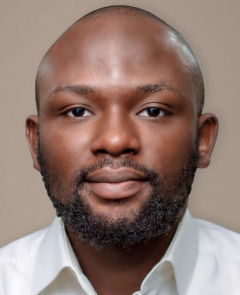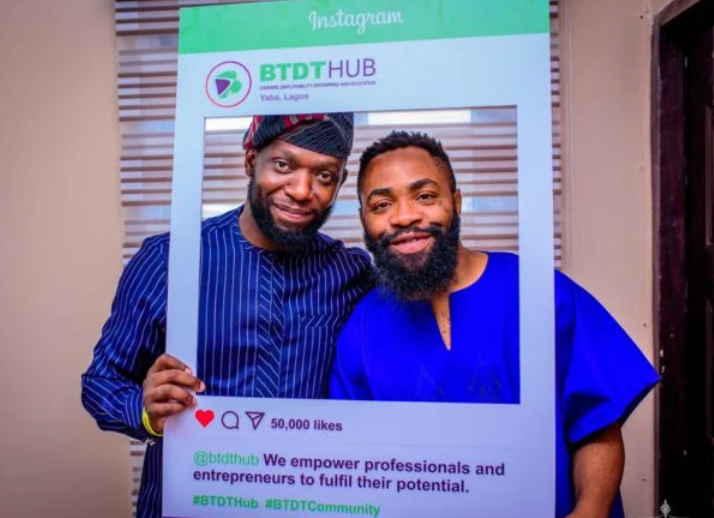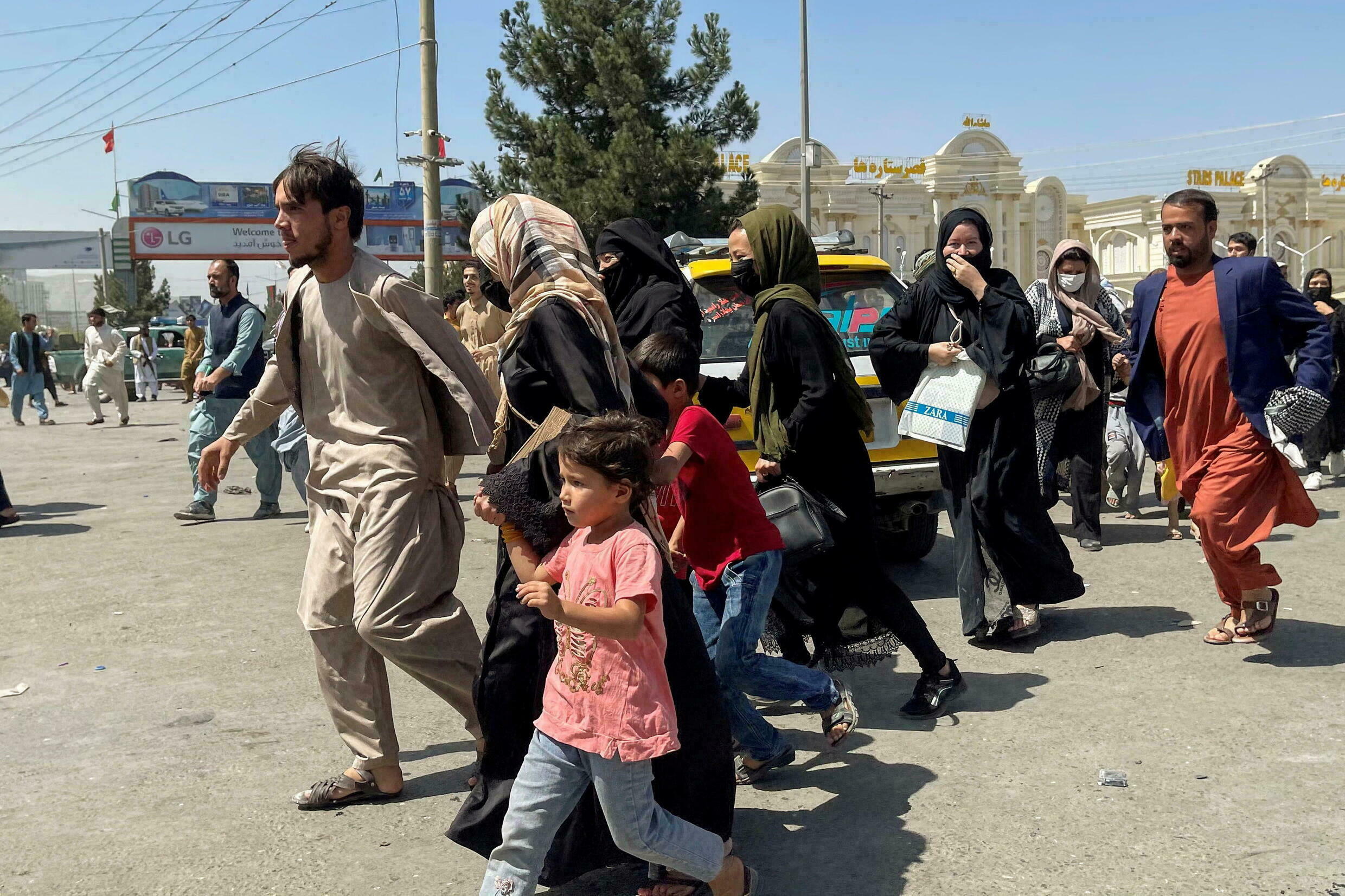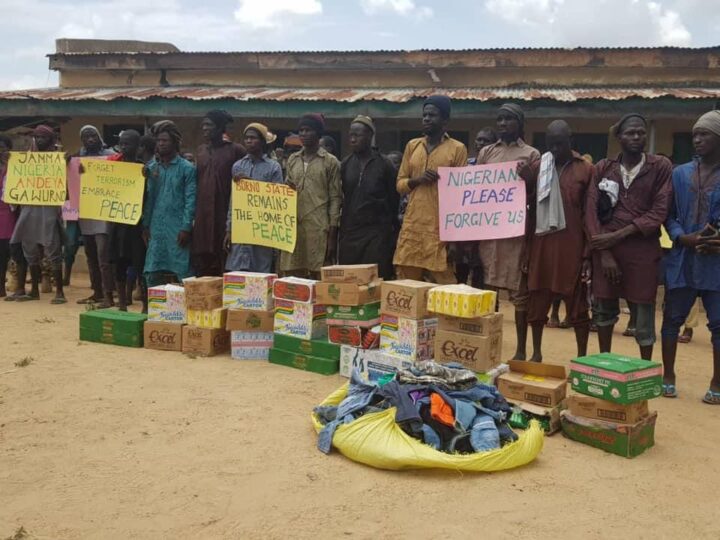When I was invited by my brother Dr Dipo Awojide, popularly known as Ogbeni Dipo for the grand opening and office tour of BTDT Hub in Lagos, I could not decline, despite having two wedding events scheduled for the extremes of Lagos on the same day. I knew right there that if anything at all, I must beckon my inner strength, to ensure that I touch base with all three events.
Also, beyond my will, I also knew it was the least I could do, for a man who has consistently honoured me, on many occasions and whose clarity on issues and interpersonal engagement I consider very elevated, dignifying, and insightful. There is no doubt that Ogbeni Dipo, who is also a Senior Lecturer at the Nottingham Business School in the UK, has been far too kind to me in all our interactions.
After my first engagement for the day, I dropped by, just in time at BTDT Hub’s new office in Yaba, for the grand opening and office tour. As expected, the event attracted the brightest and the best. A testament to Ogbeni Dipo’s extensive network, contact and ability to bring even those who are diametrically opposed on political and social views, together under the same roof. It was the stuff of a unifier!
The event had among other influential personalities, the remarkably supportive and enterprising Egbon Tosin Ashafa BTA, Jubril Gawat SSA to the Lagos State Governor on New Media, Victor Mathias, Seun Okinbaloye both of Channels Television, Seun Fakorede the immediate past Commissioner for youths and sports in Oyo State, whom I am looking forward to his reappointment. Others include, Mayowa Tijani of The Cable, Ayo Adio, Publisher of The Avalon Daily, Twitter personalities Ayo Bankole, Demola Olanrewaju, Bayegun Oluwatoyin (Woli Arole) and my brother in whom I am well pleased, JJ Omojuwa!
Advertisement
A point that all the speakers remarked at the event is Ogbeni Dipo and BTDT Hub’s commitment to close the current skills gap and equip Nigeria’s youth population with skills that can keep them ahead in the global job market. Since its creation, BTDT has focused on education, personal and career development. And this effort resonates with me so resoundingly, considering that in my book, The Urgency of Now, I argued that the challenge with Nigeria is not only that of unemployment, but also that of unemployability (Skills gap) which is less often talked about.
In my opinion, this challenge of skills gap stems from an educational system that has failed to focus on skills. At present, Nigeria’s educational system with its traditional based learning method, only sets people up to be reliant and dependent. The school system still applies outdated models and the same old elixirs that the world has since left behind.
Like I noted earlier, asides from the obvious challenge of unemployment, the challenge of skills gap is even more present and imminent. The Nigerian job market is unable to take full advantage of new global opportunities. Beyond its outdated curriculum and fixation on skills that are no longer in demand, its major focus on grading and theory has also not helped the students. This is why we need outcome-based learning, which is a learner-centred approach to education that focuses on skills, proficiencies and abilities.
Advertisement
The orientation and philosophy of education must change if we must address the problem of unemployment and unemployability. It must be about skills and what students can do in practical terms, rather than what they can reproduce during assessment.
And it is sad, that the managers of education in Nigeria, have not realised our retrogression or complete lack of evolution. It is impossible to talk about competitiveness, when almost all the top 20 skills in global demand are not even offered by any Nigerian University. According to the Future of Jobs Survey 2020, some of the top 20 job roles include Data Analysts and Scientists, AI and Machine Learning Specialists, Big Data Scientists, Process Automation Specialists, Internet of Things Specialist, Robotics Engineers, Fintech Engineers, Digital Transformation Specialists, Software and Application Developers. How many of these courses are offered in Nigerian Universities?
I have always said that the purpose of education is tripodal, it is that of enterprise, innovation, and creativity. But Nigeria’s current, traditional model of learning, does not offer that. It is time to evolve and adopt the more learner centred model of learning, which is the outcome-based learning I am advocating, that will place more emphasis on the acquisition and development of skills.
Any keen follower of my interventions in the past, must have identified a few patterns, and one of such is my consistent advocacy for Nigeria to take the education of our population more seriously. I am convinced that if Nigeria must be great, then we must invest in the productive capacities of our people, so that they can be contributors to the economy in a sustainable manner and can become the architect of the growth we are talking about.
Advertisement
As it has always been repeatedly said that the true wealth of a nation is not the one beneath the ground, it is the one above it – the people. And Singapore especially understands this, which is why it has moved from a country of impoverished people to a prosperous and economically vibrant nation.
Most of the answers we are looking for, lie in education, it is left for us as a nation to prioritise it, so that the answers will not remain further from us!
Views expressed by contributors are strictly personal and not of TheCable.
Add a comment







